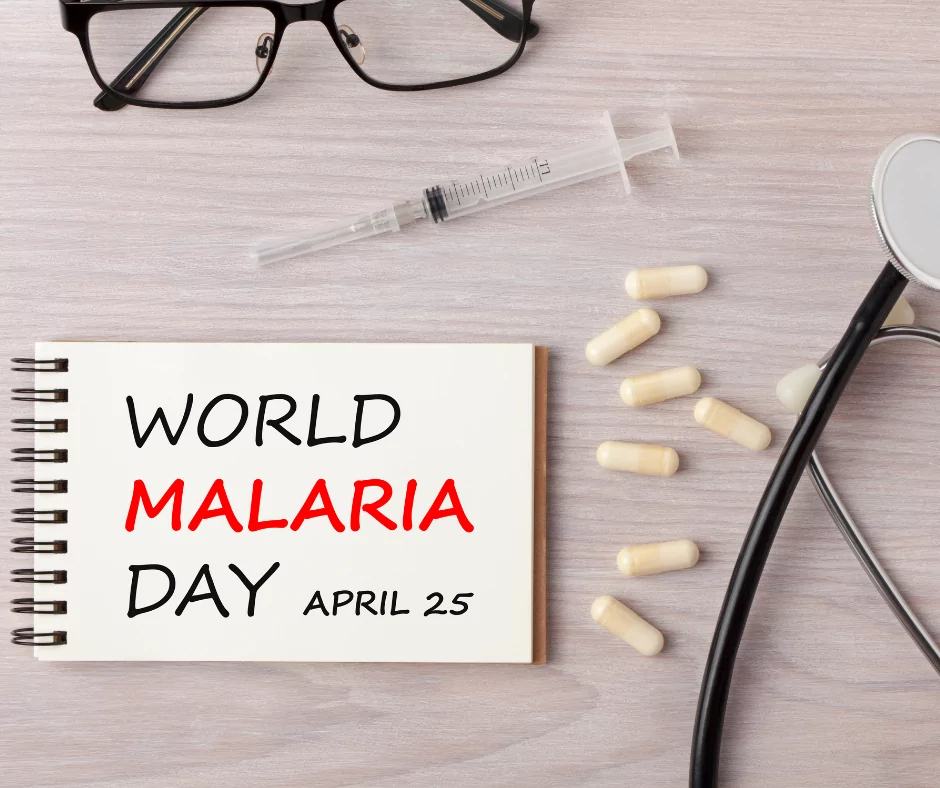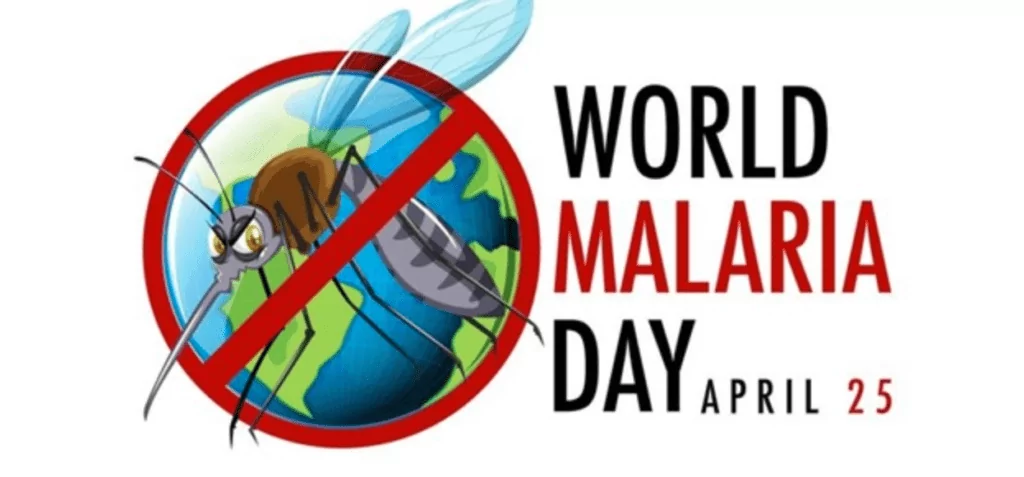The History of World Malaria Day
In May 2007 the 60th session of the WHA (World Health Assembly) established the World Malaria Day as an international observance commemorated every April 25 to recognize global efforts for malaria control.
Prior to the establishment of World Malaria Day, every April 25 since 2001, Africa Malaria Day was held. This particular event was initiated after the Abuja Declaration. The declaration was signed by 44 countries that are prone to malaria endemics.

It’s an interesting fact that each year the World Malaria Day is focused on a different and specific theme. The slogan ‘Malaria: a disease without borders’ was used in 2008 and ‘Counting malaria out’ followed in 2009 and 2010.
In 2011 and 2012 the slogans ‘Achieving Progress and Impact’ and ‘Sustain Gain, Save Lives: Invest in Malaria’ were used as specific themes. ‘Invest in the future: defeat malaria’ represented the 2013-2015 World Malaria Day, and in 2016 and 2017 the theme changed to ‘End Malaria for Good’.
This year’s World Malaria Theme is “Time to deliver zero malaria: invest, innovate, implement,” – as announced by the World Health Organization.

This year’s theme is centered around creating awareness of the need to implement present-day strategies and tools in areas we haven’t reached in the Western Pacific region.
What is Malaria?
Malaria is an acute febrile illness caused by Plasmodium spp. parasites. The disease is transmitted through the bites of vectors also known as the female mosquitoes (Anopheles). No less than five Plasmodium species are responsible for causing malaria in humans, but P. vivax and P. falciparum pose the biggest risk.
The first one (P. vivax) is the most prevalent species outside sub-Saharan Africa, while the latter (P. falciparum) causes is responsible for most deaths related to malaria in Africa and across the globe.
It takes about two weeks for the symptoms of the disease to occur after the bite was being experienced by individuals that are lacking proper immunity. The acute phase shows symptoms of fever, chills, and headaches and can lead to severe illness if left untreated in the first 24 hours.
Severe cases of malaria in children are characterized by anemia (lack of sufficient blood), cerebral disruptions, and respiratory distress. Multiple organ failures are also frequent in adults. People living in endemic areas can experience asymptomatic infections if they managed to develop partial immunity.
Facts About Malaria
- Malaria is not a contagious disease, meaning that a healthy person cannot get infected when having had contact with an infected person.
- Sometimes, the parasite remains in the latent phase and symptoms can occur up to four years after the infection had first taken place.
- The disease exists in 103 countries around the world, and approximately 3.3 billion people are at risk each year.
- An average death rate of 90% occurs due to malaria infection occur in sub-Saharan Africa; the vast majority of the people are children under the age of five.
- Every year approximately 1.500 malaria-positive cases are reported in the United States of America.
- Disney’s animated movie ‘The Winged Scourge’ that was released in 1943 featuring the Seven Dwarfs was an anti-mosquito and anti-malaria propaganda campaign.
- The Latin roots of the word ‘malaria’ literally mean ‘bad air’ because the Romans thought swamp fumes were the primal source of the illness.
- Eight US presidents contracted malaria, including George Washington, Abraham Lincoln, Theodore Roosevelt, and John.F. Kennedy.
- In 2016, there were 216 million cases reported, which is five million more than in 2015. 445.000 of them proved to be lethal.
- In 2019, the total funding for malaria reached three billion dollars in the USA alone. Governments from endemic countries contributed a whopping 900 million dollars to eliminate the disease. Their contribution made up 31% of the total funding for that year.
Celebrate World Malaria Day by educating your friends about this illness, by watching a historical documentary on the subject, or by contacting an NGO that works with malaria-positive people in Africa and see how you can help.
Curbing the Spread of Malaria
Symptoms of malaria include fever, chills, headache, body aches, nausea and vomiting, as well as other more severe symptoms such as jaundice, convulsions and coma in severe cases. Malaria can be potentially fatal if not treated promptly with appropriate medications.
According to World Health Organization (WHO), there were approximately 219 million cases of malaria worldwide in 2017 resulting in around 435 000 deaths. The majority of these deaths occur in Africa where children under five years old represent a large proportion of those affected by the disease.
WHO recommends several preventative measures to protect against malaria, such as sleeping under insecticide-treated mosquito nets, using insect repellant, and taking antimalarial medications. It is also important to reduce breeding sites for mosquitoes by draining any standing water around the home. Taking these preventative steps can help to protect people from contracting malaria and stop its spread.
In addition to prevention efforts, early diagnosis of malaria is key in helping individuals get prompt treatment that can save lives. Diagnostic tests such as rapid diagnostic tests (RDTs) are simple and quick to use, allowing medical professionals to get an accurate diagnosis within minutes.
With correct diagnosis and appropriate interventions, the impact of this deadly disease can be significantly reduced. While progress has been made in controlling malaria, there is still more work to be done in order to completely eradicate it. By continuing the fight against malaria and working together, we can ensure a healthier future for all.
To learn more about how you can get involved in the fight against malaria, please visit: http://www.malariaconsortium.org/take-action/. Together we can help bring an end to this deadly disease and provide better health outcomes for everyone around the world. Let’s take action and make a difference!
World Malaria Day 2023
The theme of this year is still to be decided, and as soon as more information becomes available, we will update this article. Stay tune for more!
If you enjoyed this article, you can read about a similar observance that takes place in April, namely; National Public Health Month, on our blog.
